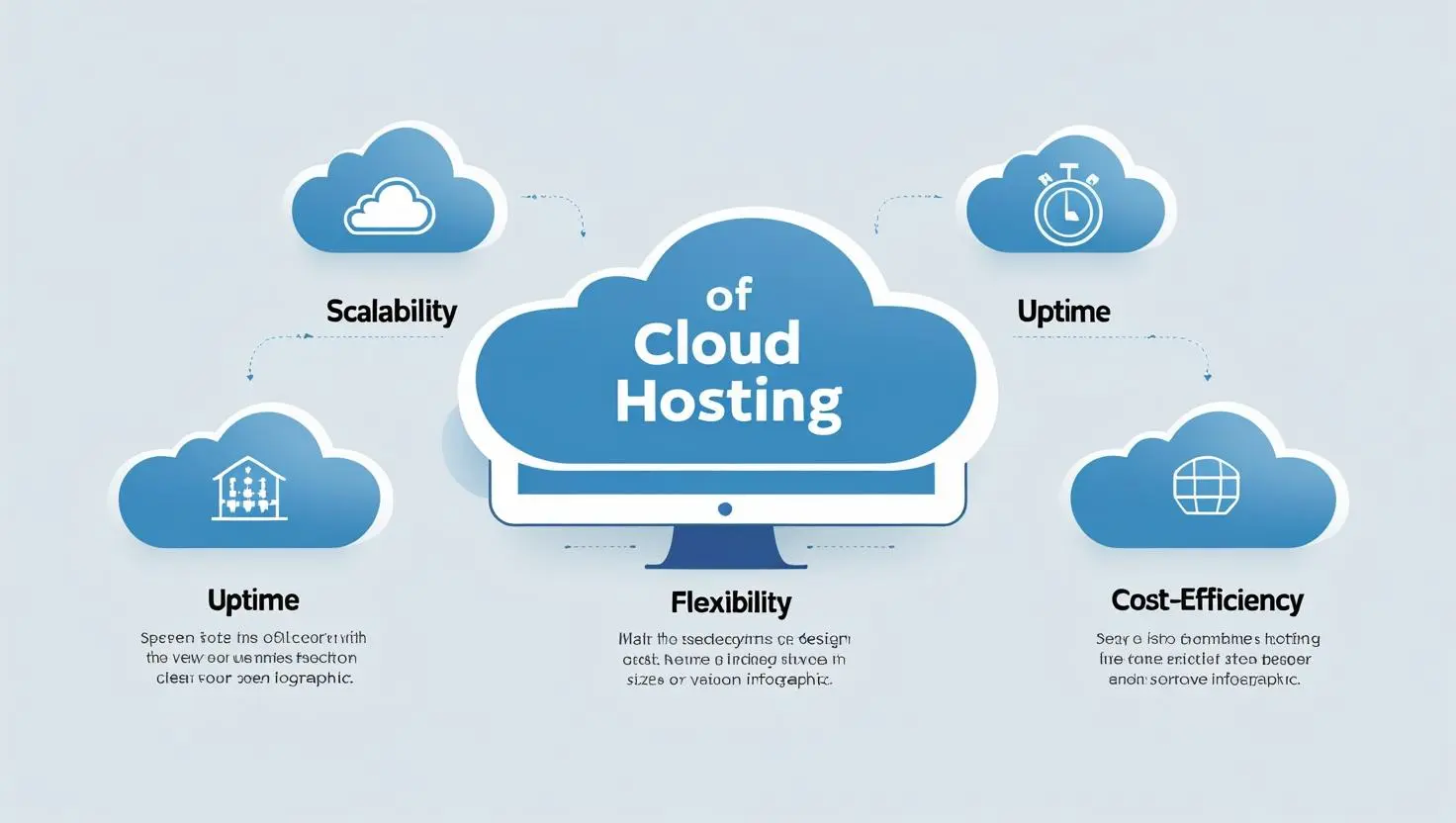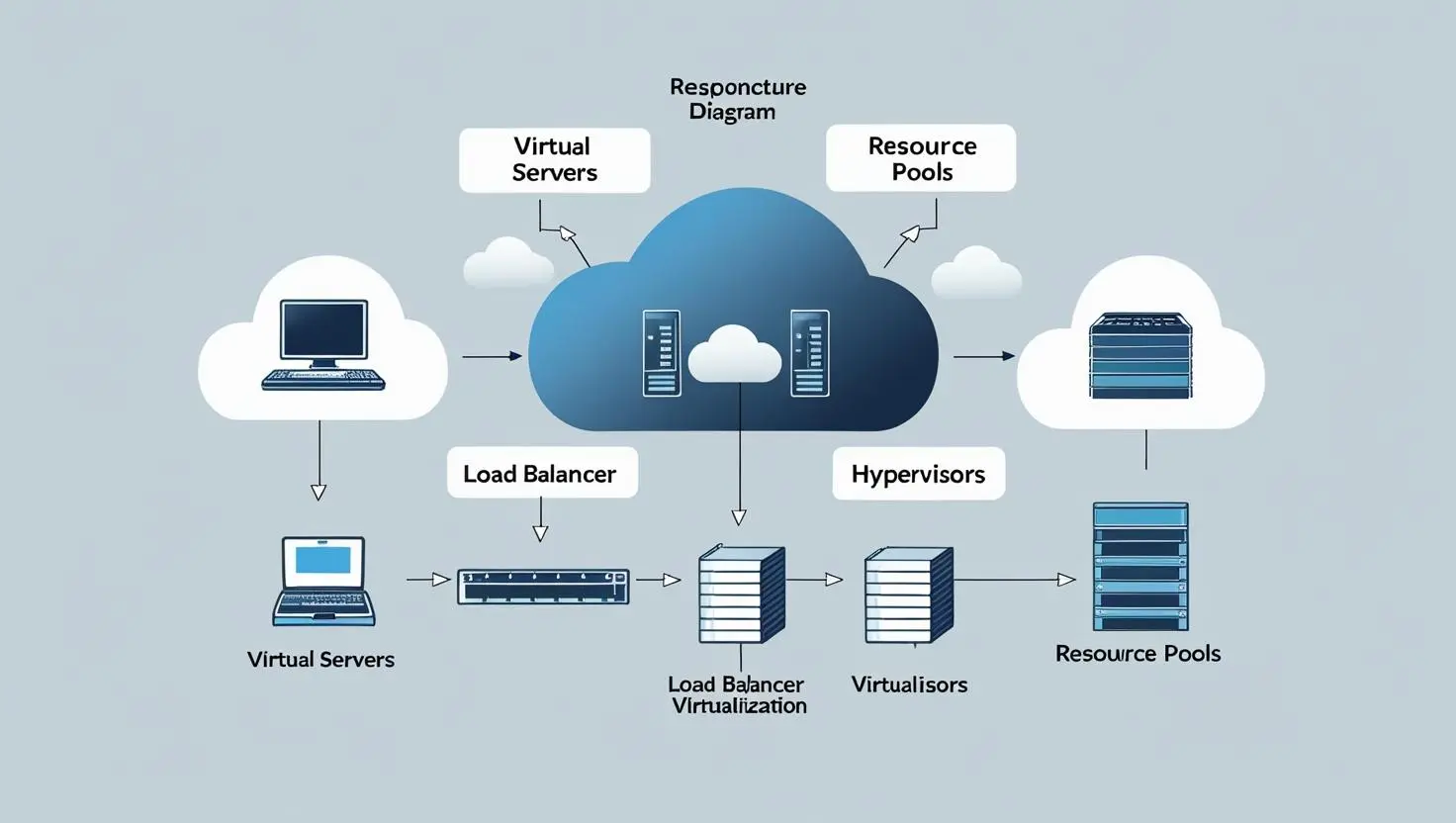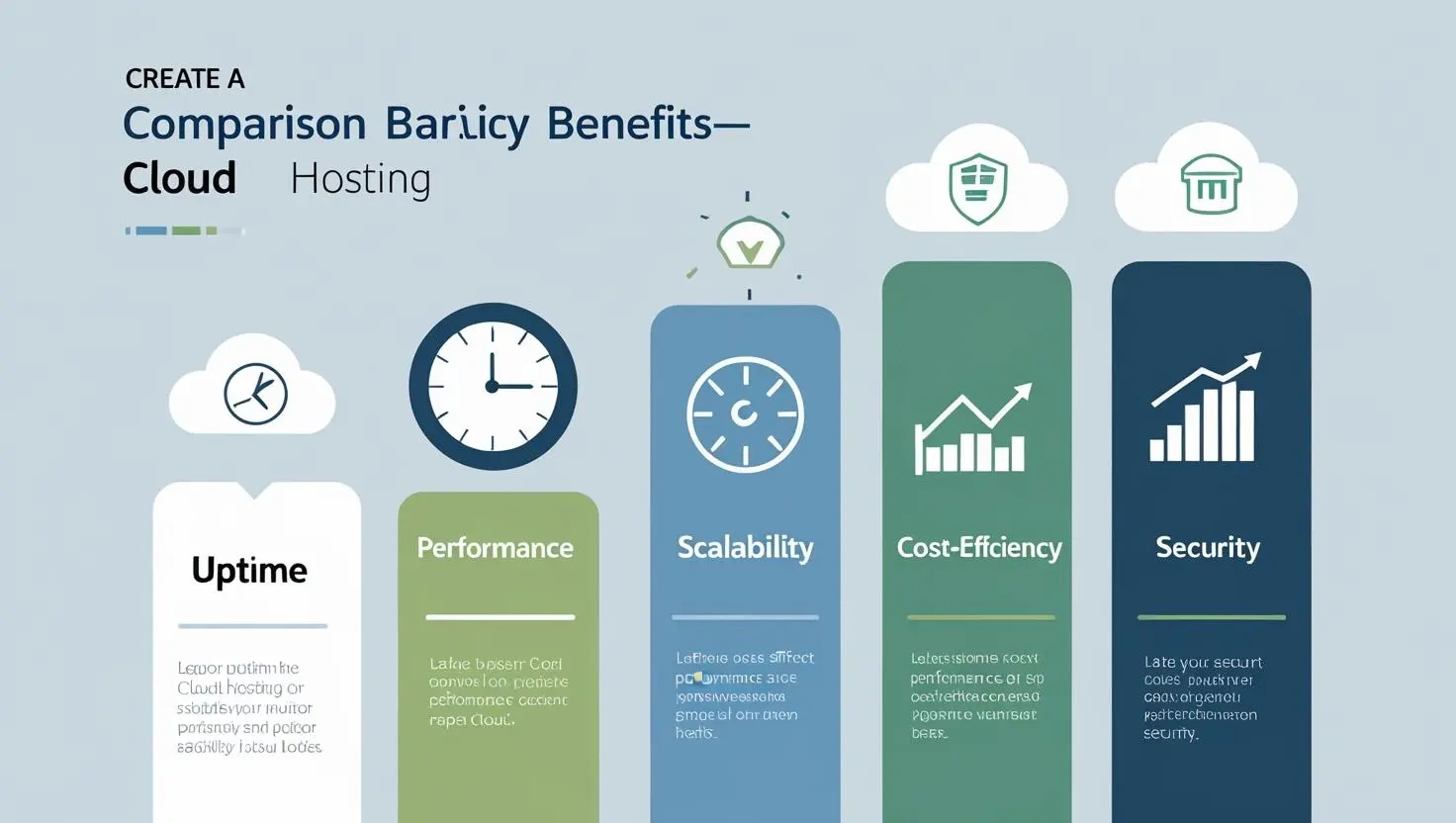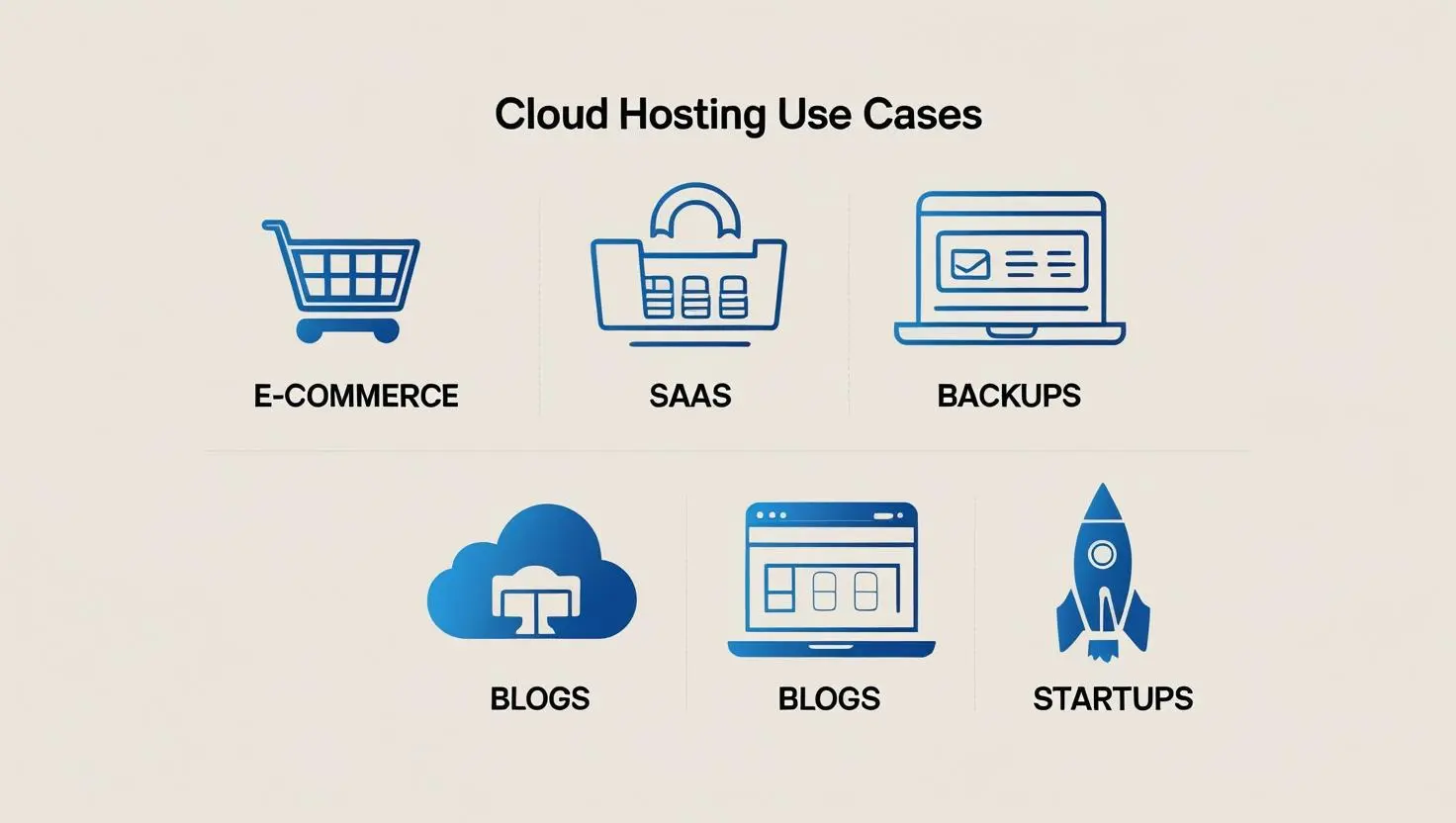☁️ Cloud Hosting Made Simple – Advantages and Uses
Introduction
Hello and welcome! If you’re curious about cloud hosting and why so many websites are moving to it, this guide is for you. Think of cloud hosting as a flexible, reliable way to keep your site online and fast, no matter how much traffic you get.
Whether you’re a small business owner, a blogger, or running a growing SaaS platform, knowing how cloud hosting works can save you money and time. We’ll cover everything from basics to real-life applications. Beginners can also peek at our guide to web hosting first.
What is Cloud Hosting?

Cloud hosting spreads your website across multiple virtual servers instead of relying on one physical machine. This means your site stays online even if a server fails. Think of it like storing your site in the cloud — safe, scalable, and reliable.
It also gives you flexibility to adjust resources instantly. Curious about where cloud fits among other options? Check types of web hosting.
How Cloud Hosting Works

Here’s a simple breakdown of what happens behind the scenes:
- Resource Pooling: CPU, RAM, storage, and bandwidth are pooled from multiple servers.
- Virtualization: Virtual machines host your website efficiently.
- Load Balancing: Traffic is distributed evenly so your site never slows down.
- Redundancy: If one server fails, another takes over automatically.
- Scalability: Add or remove resources instantly depending on your traffic.
This setup beats traditional shared hosting or VPS hosting because you’re not limited by one server.
Advantages of Cloud Hosting

- Scale Easily: Instantly increase resources as your traffic grows.
- High Uptime: Multiple servers keep downtime minimal.
- Pay for What You Use: Flexible costs, unlike fixed-price dedicated servers.
- Fast Loading: Load balancing keeps your site snappy.
- Secure: Firewalls, encryption, and certifications protect your data.
- Automatic Backups: Easy recovery in emergencies.
Cloud Hosting in Action

- E-Commerce Sites: Handle seasonal traffic and secure payments. For tips, see secure hosting practices.
- SaaS Apps: Scale smoothly with high availability.
- High-Traffic Blogs: Manage unpredictable visitors easily.
- Startups: Begin small, grow without huge infrastructure costs.
- Backups & Storage: Keep files safe and scalable.
Types of Cloud Hosting
- Public Cloud: Shared resources from providers like AWS, Google Cloud, or Azure. Affordable and scalable.
- Private Cloud: Exclusive resources for your organization. Extra secure, more costly.
- Hybrid Cloud: Mix of public and private, balancing flexibility, cost, and security. Learn about managed vs unmanaged hosting.
Cloud Hosting vs Other Hosting
| Type | Scalability | Cost | Performance | Best For |
|---|---|---|---|---|
| Shared Hosting | Low | Low | Moderate | Beginners, small sites |
| VPS Hosting | Medium | Medium | High | Growing businesses, devs |
| Dedicated Hosting | Low | High | Very High | Enterprises, heavy traffic |
| Cloud Hosting | Very High | Flexible | Very High | E-commerce, SaaS, big traffic |
Still unsure? Compare in detail: Shared vs VPS vs Cloud Hosting.
Picking the Right Cloud Hosting Provider
- Check scalability and how quickly resources can be increased.
- Look for uptime guarantees and performance benchmarks.
- Verify security features like SSL, firewalls, and compliance.
- Automatic backups and disaster recovery options are essential.
- Responsive 24/7 support for any issues.
- Transparent pricing without hidden costs.
Popular Cloud Hosting Providers (2025)
- AWS: Global coverage and extensive tools.
- Google Cloud: Great for AI and analytics integration.
- Microsoft Azure: Enterprise-friendly with hybrid options.
- DigitalOcean: Simple pricing for developers.
- SiteGround: Managed cloud hosting with strong support.
Check our detailed comparison: best hosting providers 2025.
FAQs
Is cloud hosting expensive?
You pay for what you use, so it can be cost-effective, especially as your site grows.
Can I move my existing site to cloud hosting?
Yes, most providers offer migration help or guides.
Is cloud hosting secure?
Yes, providers use strong encryption, firewalls, and comply with security standards.
Do I need technical skills?
Managed cloud hosting is user-friendly; unmanaged requires more expertise.
Will it help my SEO?
Absolutely. Faster speed, high uptime, and security improve your rankings.
Conclusion
Cloud hosting is a modern solution for websites and apps that need speed, reliability, and scalability. With cloud hosting, businesses and creators can focus on growth while technology handles the heavy lifting.
No matter if it’s an online store, SaaS app, or high-traffic blog, cloud hosting has the flexibility and power you need. Start exploring today with our basic hosting guide.